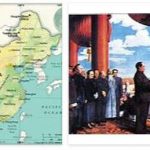Globalization therefore does not only mean that trade in goods or services can take place more easily and cheaper than before. It has also contributed to better living conditions for many people. This applies to both rich and poor countries. At the same time, globalization means that information becomes more accessible – both in rich and poor countries. With access to more and better information, it will be possible for most people to align themselves better than before. It will be possible to produce new goods in several countries. It helps more people to take care of their own and others’ health.
7: Problems and challenges
But you are wrong if you think that everyone benefits from globalization. Globalization involves many adjustments and changes. Businesses are closed down when competition becomes fierce. Local producers have to lay off workers. In some countries, production from poor small farmers is outcompeted by production from larger producers so that poor people lose their livelihoods. Such changes may mean that some groups become poorer as a result of globalization. In some lands, the poor can be driven from the land they cultivate. One reason for this may be that new types of agricultural production become more profitable. Landowners may therefore prefer to evict poor farmers in favor of producers who can operate it more efficiently and pay more for the use of the land.
Today we have more access to information about the whole world than any other generation has had. Today, it is more difficult to hide information about what is happening in the countries of the world. The world community quickly gains insight into abuses, electoral fraud and human rights violations. It is a strength of democracy and democracy. In the autumn of 2007, there were riots in Burma. Although Burma is a closed country and a brutal dictatorship, it was not possible for the regime to prevent the world community from gaining insight into what happened. In the spring of 2008, there is unrest in Tibet. There are riots because many Tibetans feel oppressed by the Chinese government. There is a strong desire for more independence in Tibet. It is not possible for China to prevent the world community from gaining insight into what is happening in Tibet.
In many cases, it can be important for the distribution of profits and losses if the country has a good system of government. With welfare schemes such as schooling and unemployment benefits, the poor’s ability to cope with adjustment and unemployment can also be improved. Good welfare schemes can therefore mean a lot to whether a country can benefit from globalization.
Lower infant mortality
Figure 4 shows that child mortality has fallen sharply – in all income groups. When families receive better income, and with it also more education, knowledge and information, more children can survive the earliest childhood years. But child mortality is still very high in the poorest countries. Far higher than it was in Norway in 1960. How many children die each year before the age of five?
8: International investments
According to sciencedict, globalization has made it easier and cheaper to move capital across national borders and over long distances. Political decisions and technological innovations have helped to make capital transfers easier than before. These can take place very easily through data communication. Capital owners can buy shares in other countries using a few keystrokes from their own home PC.
Cross-border investments are of two main types:
- We have portfolio investments when capital owners buy shares in other countries or make bank deposits with a view to being passive owners – often with a short-term time perspective. When the scope of this type of investment becomes large, the development in foreign capital markets becomes more important, cf. when Norwegian municipalities in 2007 lost large amounts on their investments in the USA.
- Foreign direct investment , we have when companies, often multinational companies that own companies in many countries, buy or establish new production activities in other countries.
Direct investments often have three different main motives. First, they may be motivated by a desire for market access. By operating production in a market, the company is not affected by customs or trade barriers; they come, so to speak, behind any customs barriers. In addition, transport costs will be lower. The second main motive may be that the country where the investments are made has important resources such as cheap labor or natural resources.
Today, China receives a large share of the world’s total foreign direct investment. One reason for this is that China has a large workforce that often receives low pay compared to workers in Western Europe. The third motive may be access to technology. A multinational company can buy a company because this company owns a particularly attractive type of technology.
International capital movements contribute to better access to capital in poor countries in the world. While domestic savings were previously necessary to be able to realize investments in new companies, it is now possible either to borrow capital abroad, or to get international capital owners to invest in new companies. International capital movements also contribute to technology transfer between countries. When Nokia invests in China, technology developed by Nokia (and possibly in Finland) is used in production in China.
But international investment is also helping to make the world more intertwined. Above we mentioned how Norwegian municipalities lost on their investments in the USA. Jobs in one country can be lost if production is moved to another country where labor is cheaper.








